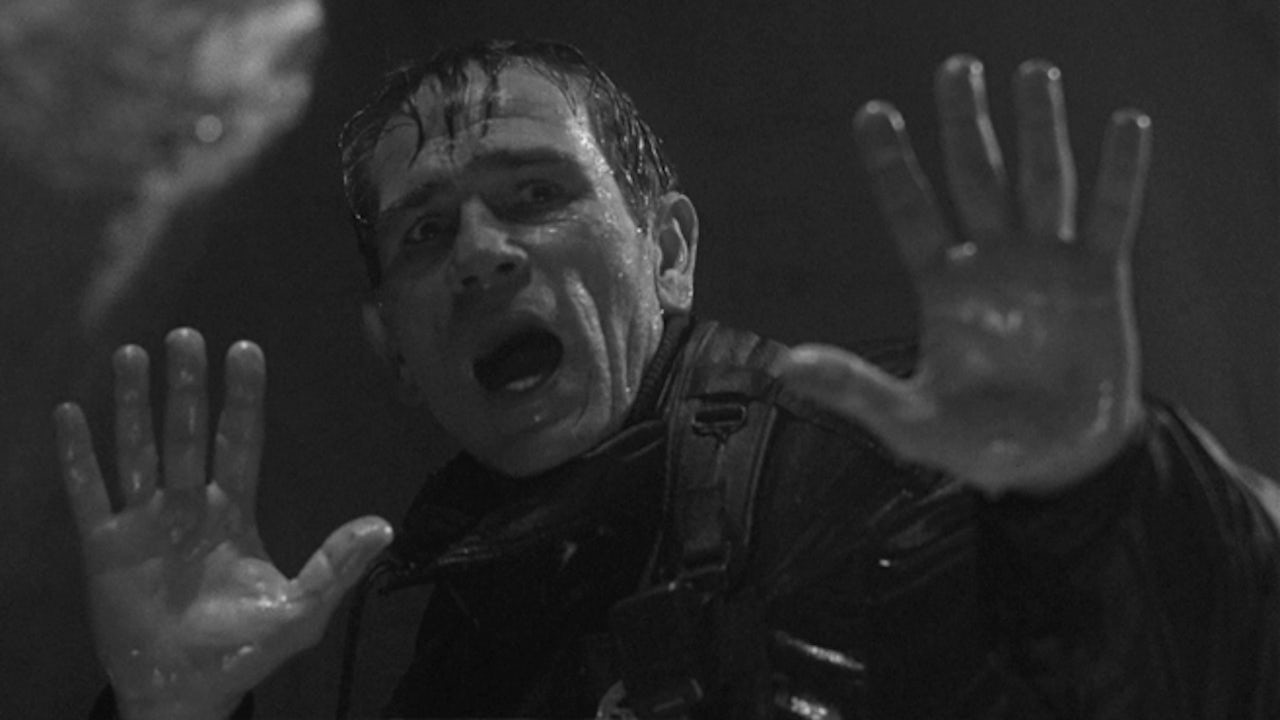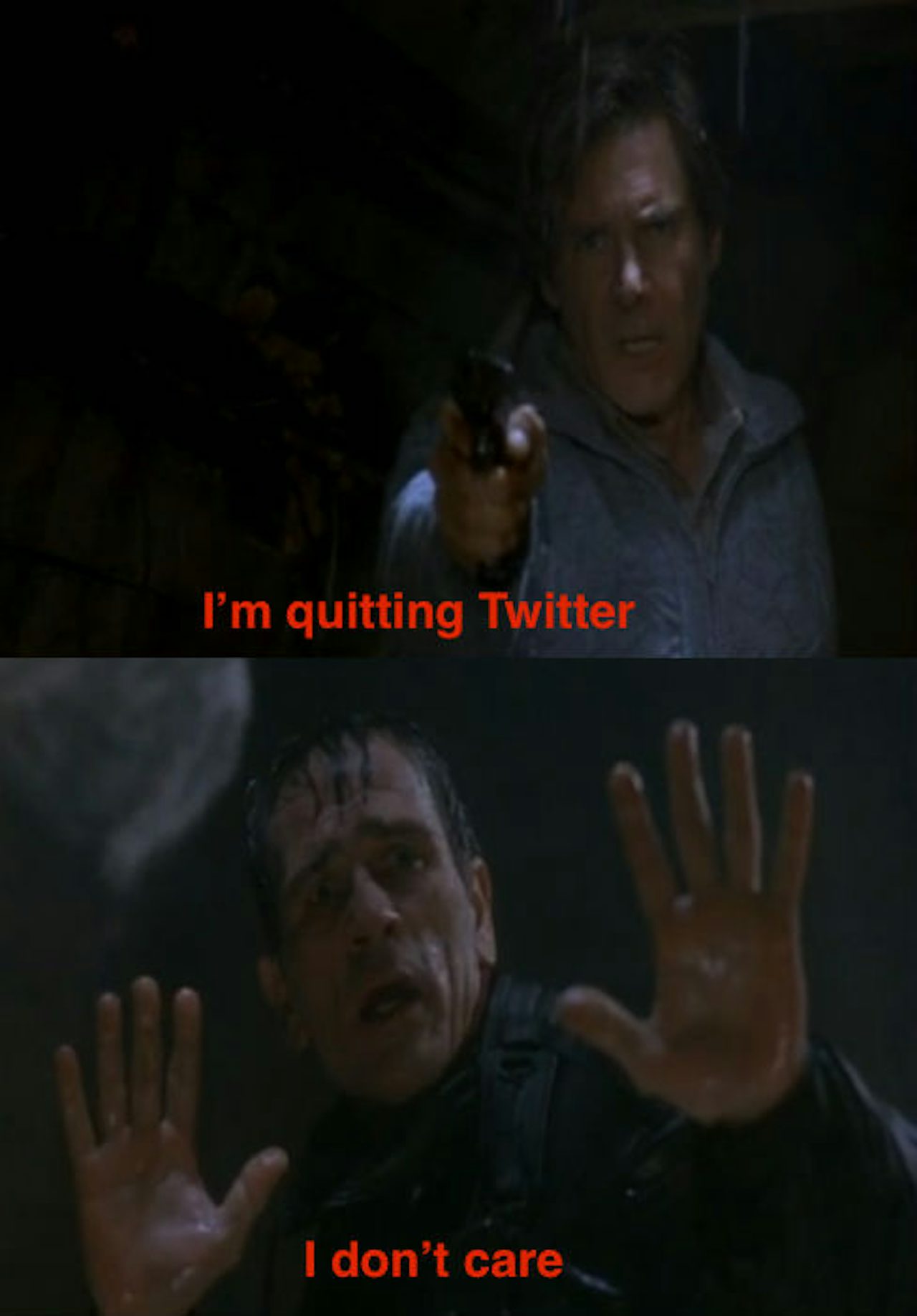The idea of a “first-world problem” is often misguided; people in developing nations worry about faulty cell phone coverage and shoddy banking apps, too. Nonetheless, it’s true that westerners love to complain about trivial matters, and problematize actions that have no meaning in a sane society. An acquaintance once sent me an angry e-mail accusing me of not liking him because I had failed to favorite his tweets for several months. What could I say? “Your tweets suck?” Instead, I apologized and unmuted him.
In my daily life, Twitter, or more broadly, “online,” is the axis on which many of these frivolous complaints turn. To be clear, there are many legitimate things wrong with Twitter, like the way it silos polemic strains of thought into increasingly toxic bubbles, and the way it encourages anonymous white supremacists to threaten strangers with rape and murder. But many Twitter problems that people love to obsess about, like my friend’s assumption of distaste vis-à-vis my failure to smash that like button, or the broader “I can’t believe [idiots I follow] think [good article is great],” are immensely facile. They can be solved by closing your laptop, going outside, and remembering we are but infinitesimal specks of dust floating in a sunbeam, not creatures who should ever immediately understand when asked, “did you see the bad tweet?”
Nevertheless, thousands persist in using the service, for reasons it would take a therapist years to untangle. Every now and then, escape seems viable. Some of us quit Twitter by announcing it to our followers, only to return a few days later. Some of us hand over our accounts and passwords to friends, with explicit instructions not to let us back in until we have to announce we’ve started a new job. Some of us write essays about The Problem With Twitter and publish them to our blogs when every self-respecting editor passes.
Why? Who knows? It can’t be for our careers, or for our news literacy. It’s not enjoyable to be bombarded by anime Nazis. The low grade anxiety of feeling pressure to “participate on Twitter” has ruined a lot of people’s brains. The most honest answer I can come up with is that it’s somewhat fun, or at least more fun than a lot of things, to idly exist in a space where a lot of people seem to approve of your bullshit for whatever reason. (I’m funny? I’m smart? I’m cute? Please?)
There is also the fantasy of how good it could be, if everyone dialed down the narcissism by 20 percent and the white supremacy by 100 percent. The internet was founded on the promise of open communication and the free exchange of valuable ideas — when Twitter (or more broadly, “online”) is good, it brokers new friendships and sparks engaging discourse. It’s unequivocally good when this happens, and yet the internet makes me so sad all of the time. It can’t purely be the Nazis, can it? What will it take to better balance my relationship with it? Will the therapists even understand what you’re talking about, even after you explain it?
The Fugitive is a 1993 action movie starring Harrison Ford as Richard Kimble, a doctor who is wrongfully accused of murdering his wife, and Tommy Lee Jones as Samuel Gerard, the no-nonsense U.S. Marshall tasked with bringing him in. It grossed nearly $200 million in the United States, was positively reviewed by the vast majority of critics (Roger Ebert gave it four stars), and was nominated for a Best Picture Oscar.
The Fugitive is a fine film. There are many enjoyable things about it, like the claustrophobic cat-and-mouse interplay between Ford and Jones and its usage of Chicago, and a few flatly ridiculous things, like the fact nobody can recognize Ford without a beard. I watched it for the first time a few weeks ago, when I was bored and stoned on a Saturday night and realized that The Fugitive, like many cultural products, has passed into that phase where I know everything about it and can quote its pivotal scenes despite having never experienced it firsthand.
But in utilitarian terms, the movie’s most pivotal scene is all you need. You might know the one I’m talking about. It takes place in the service tunnel of a dam, in which Kimble is trying to wriggle out of a trap set by law enforcement. Gerard has followed him into the tunnel, but the footing is slippery. While trying to figure out which way Kimble has gone, he trips, and drops his gun in the water.
When he gets up, he comes face-to-face with Kimble, who has recovered his gun, for the first time in the movie. Gerard raises his hands but does not appear terrified, even with an accused murderer and fugitive from the law pointing a gun at him, because this ability to depict taciturn confidence in the face of all danger is something Tommy Lee Jones is particularly renowned for.
“I didn’t kill my wife,” shouts the visibly earnest, insistent Kimble, gun level with his chest.
“I don’t care,” shouts Gerard, in the most matter-of-fact way possible as he shakes his head, arms still raised.
Kimble runs away. Gerard — who has a second gun, because he’s a cop — follows. They come to another confrontation in another tunnel, at which point Kimble decides to jump into the dam rather than turn himself in. The movie goes on for another hour or so after this, during which it’s revealed (of course) that Kimble is innocent, and that Gerard was not being entirely honest when he said he didn’t care.
But again, this pivotal scene is all you need from the movie. (Like many pivotal scenes, I first became aware of it via a Simpsons parody.) More crucially for my purposes, this pivotal scene has become an inside joke among my friends as a meme we didn’t invent but use almost exclusively, where an earnestly expressed opinion is met by Tommy Lee Jones’ affirmation that he just doesn’t give a shit. Here’s an example, which I sent to a Pitchfork senior editor friend of mine, after he asked me to condense my qualms about a recently published list of best ‘80s albums in a format he could summarily ignore:
Isn’t it good? Like the best memes, I’ve been thinking about it a lot. To me, it crystallizes everything exhausting about the way people talk on the internet, as well as my increasing fatigue at sifting through the day’s discourse to figure out what it is exactly that people are arguing about. (As of 3:14 p.m., when I type this sentence, there is a brewing debate over whether Google Docs or Microsoft Word is preferable for writing, which has inspired at least a half-dozen pissy tweets from people whom I otherwise respect.)
There are, let’s say, 1,000 websites, and one million things to read at any given moment. On top of that, there’s about a billion tweets being sent all of the time. A normal human being with a normal attention span can hope to consume a fraction of all this; the vast majority of writing produced online (and in general) is mercilessly unread by anyone but the people involved with producing it and their friends. This is hugely upsetting, but it’s just the way it is. If you want to depress an editor, ask them about the best story they ever worked on that had an average reading time of 20 seconds.
So, in the race to attract attention, everyone begins to lie a little. Publications lie about the heft of the story they’re presenting, writing headlines like “We have to talk about Dunkin’ Donuts’ name change” (a construction that immediately indicates we don’t have to talk about it at all) or “Chrissy Teigen SLAMS Khloe Kardashian’s mom-shaming” (when, in fact, Teigen offered a mild critique). Writers pitch their opinions in more polarizing directions in order to gain traction and “go viral”; they justify the time they’ve spent someone else’s story by exaggerating how good it is (e.g. “This is the best thing you’ll read all day,” when for all they know, I’m going to go home and read the best book ever written). People, everywhere, many of them not writers or editors, will express strident opinions that are simply not true, in the hopes that someone, anyone, will pay attention.
If you’ve spent enough time online, you can recognize this imperious, mildly hysterical tone — the one that suggests you must pay attention to this, under penalty of death. The more I’m exposed to it, the more weary and apathetic I become. When everyone is so implicitly up-in-arms, all of the time, you can only acknowledge a few of them before you go crazy. And during this exchange, which occurs basically every time I log on, I become Deputy Gerard to the emotional poster’s Dr. Richard Kimble. There they stand, gun in hand, beckoning me to listen — and there I am, hands raised, on guard in case someone wants to kill me (or “cancel” me, which is even worse) for not believing them, but admitting that it’s just not important to me.
To be clear, I understand why people talk like this. The world is vast and confusing and angry. Thousands of forces conspire to lessen us, and pressure us to spend what available time we have preserving the person we might hope to be. It can feel stupid to spend time thinking about anything that isn’t the most important thing, to admit we privilege the ability to feel temporarily lighter even as lightness becomes impossible for so many people. To be exposed to the millions of stimuli provided by the internet is to persistently think, Am I caring too much about this? Am I caring too little? It’s very difficult to express exactly how we feel about anything in any moment, much less when we sense there is a potential audience waiting to validate us for our opinion, and that — worse! — there are potentially thousands of opinions that will be validated ahead of ours. Such is the human condition, and this desperation to be properly heard makes Kimbles of us all.
A proper solution for any of the afflicted would be to walk away, lest we continue to be exhausted. To me, it’s important to name the cause of this disease, rather than blandly claiming it’s just “Twitter” or “the internet.” Tools are often value neutral; it’s how they’re used that’s a bummer. I continue to use the internet in the hopes it’ll work out, even as this tone bums me out basically all of the time. In the movie it’s Kimble who throws down his gun, allowing Gerard to recover. If only the real world was so charitable.



